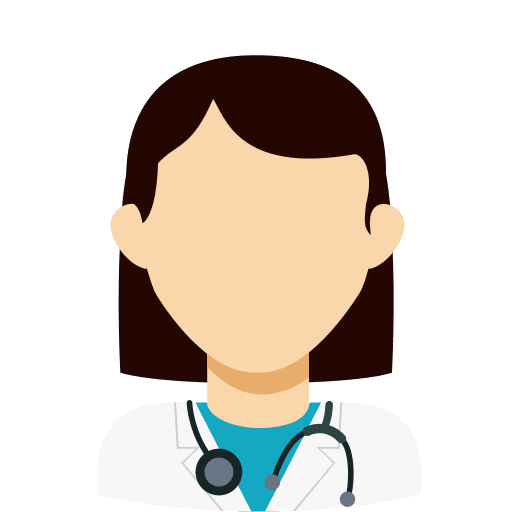An eating disorder refers to a range of psychological disorders characterized by abnormal or disturbed eating habits. Eating disorders go beyond the act of consuming food; in fact, it is a complex mental health condition that often needs medical and psychological intervention.
Do you have an eating disorder? Are you wondering about how to manage your condition? Before getting into management of eating disorders, let’s talk about the type of eating disorders out there.
What Exactly Is An Eating Disorder?
Eating disorders are a number of psychological conditions that cause the development of unhealthy eating habits. Typically eating disorders start with the obsession with food and, in some cases, obsession with attaining a specific bodyweight or shape.
If left untreated, severe eating disorders can lead to serious health complications and can be life-threatening. Eating disorders present with different types of symptoms such as food binges, severe food intake restriction and purging activities like excessive exercising and induced vomiting. Eating disorders are more common among adolescents and young women. However, they can affect people of any age and gender. Eating disorders can be linked to different factors such as brain biology, genes, cultural beliefs and personality traits.
3 Types Of Eating Disorders
There are three most common types of eating disorders:
- Bulimia Nervosa – Bulimia nervosa is a common type of eating disorder that tends to develop during early adulthood. Bulimia nervosa presents with eating a substantial amount of food during a specific duration (binge eating episode). Each episode of binge eating goes on until the individual is painfully full. Even at such a point, the individual feels like they cannot stop themselves from eating further
Another trait of people with bulimia nervosa is that binge eating commonly occurs with foods the person normally avoids. This leads to the person making attempts to purge and get rid of the consumed food in order to compensate for the consumed food and calories as well as to get some relief from the discomfort – physical and mental. People with bulimia nervosa have a fear of gaining weight even though they usually have a normal body weight
- Anorexia nervosa – Anorexia nervosa affects women more than men and is also more common amongst adolescents or young adults. People with this anorexia often see themselves as overweight, even though in fact, they may be underweight. They continue to closely monitor their weight and are extremely cautious of the types of foods they consume. People with anorexia nervosa either restrict food intake through fasting or dieting or they practice binge eating and purge later. In the latter case, after binging on large amounts of food, they start purging activities like taking laxatives, vomiting or excessive exercising
- Binge eating disorder – Binge eating disorder is also common, just like bulimia nervosa and anorexia nervosa. Binge eating can be developed at any stage in life; however, it commonly begins during early adulthood. People with this type of eating disorder typically eat an unusually large amount of food within a short period of time. During the binge eating episode, they seem not to be in control of the amount of food they consume. Unlike people with anorexia nervosa, people with binge eating disorder do not try to compensate for the binge eating by purging. They don’t restrict calories either.
Eating Disorder Management: What You Should Do?
In order to manage eating disorders, it is vital to establish and maintain a therapeutic alliance. However, the issue is that many people with eating disorders such as anorexia nervosa are reluctant to start a treatment journey. In fact, some are secretive about their condition and don’t like talking about their struggles out of shame.
What should you do if you have an eating disorder? Firstly, don’t resist getting help. The good news is that you can change your eating behavior if you are willing to take that step on the right path towards recovery. The best way to start is by sharing your story and by seeing a specialized professional who can assist with the eating disorder treatment.
You should start by seeing a primary care professional or a mental health professional to provide you with psychological therapy. Remember, this is nothing to be ashamed of; you are only seeking a solution to a disorder, a disorder you have not much control over. This is why you need help, which is the right thing to do. Alongside seeing a psychologist, you might also see a registered dietitian who would educate you further on meal planning and nutrition.
Set up a treatment plan by first determining your needs and the goals you aim to achieve. A professional will be able to assist you with this. The plan should involve deliberate efforts to treat your eating disorder and also treat physical complications if you have one.
In most cases, your doctor or psychologist will prescribe medications to help manage the eating disorder; remember to take them. Among the most common medications used to treat eating disorders are antidepressants. Antidepressants can be very helpful, especially if you have a binge eating disorder or bulimia nervosa. And remember not to give up hope. Eating disorders are much more common than you think. Getting help for yourself is commendable and never something to be ashamed of.
Conclusion
Eating disorders affect not just your eating behavior but your related thoughts and emotions as well. If you have an eating disorder like bulimia nervosa, you tend to be overly critical of your body. Treatment and management can help you navigate your way through and out of the situation. Navigating through eating disorders can be challenging, and so even though you have the will of wanting to get to the other side, support from professionals, friends and family is necessary.
References








